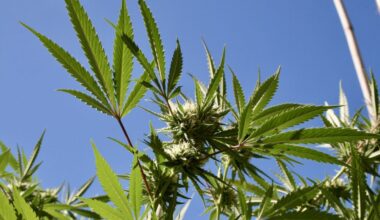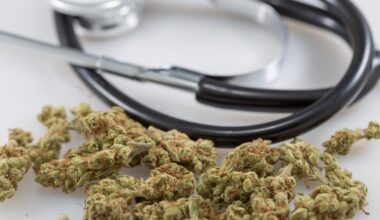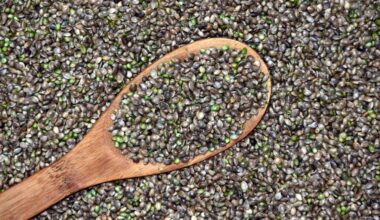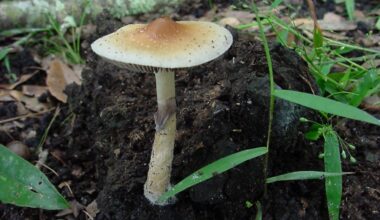A fourth Massachusetts city has enacted a psychedelics policy change, with members of the Easthampton City Council voting on Wednesday in favor of a resolution urging the decriminalization of certain entheogenic substances and other drugs.
The measure, introduced by Council Member At-Large Owen Zaret (D), passed in a 7-0 vote, with two abstentions, on Wednesday night.
“I’m grateful to the Council for being so forward thinking about a cutting edge topic,” Zaret told Marijuana Moment after the vote. “There were some hard concepts to undo for some of us. This is a step forward to helping people have access to effective therapies and also halting unnecessary arrests and incarceration.”
While the resolution is non-binding and doesn’t require police to deprioritize enforcement of laws prohibiting psychedelics—as has been the case in other cities across the U.S.—it represents an important first step and sends a clear message to local law enforcement that members are ready to depart from the status quo of criminalization.
It’s not just about psychedelics, either. The legislation says the Council “maintains that the use and possession of all controlled substances should be understood first and primarily as an issue of public health by city departments, agencies, boards, commissions, and all employees of the city.”
Lawmakers also recommended that “it should be policy of the City of Easthampton that the arrest of persons for using or possessing controlled substances for personal adult therapeutic, excepting Lophophora and animal-derived controlled substances, shall be amongst the lowest law enforcement priority for the City of Easthampton.”
Zaret told Marijuana Moment in a recent phone interview that substance misuse is a “public health issue, it’s not a criminal issue.”
“We need to start a really aggressive campaign to, A) highlight the fact that this is a public health issue and, B) be more be more aggressive about how we’re treating that,” he said. “There are multiple angles to do that,” and psychedelics represent one possible solution.
This action comes months after the neighboring Northampton City Council passed a resolution stipulating that no government or police funds should be used to enforce laws criminalizing people for using or possessing entheogenic plants and fungi. Elsewhere in Massachusetts, Somerville and Cambridge have also moved to effectively decriminalize psychedelics.
The local measures express support for two bills introduced in the state legislature this year. One would remove criminal penalties for possession of all currently illicit drugs and the other would establish a task force to study entheogenic substances with the eventual goal of legalizing and regulating the them.
“This is a victory for the health and safety of our communities,” the advocacy group Bay Staters for Natural Medicine, which has been working with local lawmakers in Massachusetts to pass the resolutions, said in an Instagram post after the most recent vote. “These medicines will revolutionize the field of mental health, and this is a step toward a community model that puts people over profit. This signals to our state lawmakers we will not tolerate an over-regulated purely clinical model that makes these medicines unaffordable for working class people.”
While Massachusetts is proving to be a focal point of psychedelics reform, it’s far from the only place where activists are gaining ground.
For example, Seattle’s City Council approved a resolution earlier this month to decriminalize noncommercial activity around a wide range of psychedelic substances, including the cultivation and sharing of psilocybin mushrooms, ayahuasca, ibogaine and non-peyote-derived mescaline.
In Michigan, the Grand Rapids City Council approved a resolution last month calling for decriminalization of a wide range of psychedelics.
Elsewhere in Michigan, the Ann Arbor City Council has already elected to make enforcement of laws prohibition psychedelics like psilocybin, ayahuasca and DMT among the city’s lowest priorities—and lawmakers recently followed up by declaring September Entheogenic Plants and Fungi Awareness Month.
After Ann Arbor legislators passed that decriminalization resolution last year, the Washtenaw County prosecutor announced that his office will not be pursuing charges over possessing entheogenic plants and fungi, “regardless of the amount at issue.”
A local proposal to decriminalize various psychedelics will also appear on Detroit’s November ballot.
At the same time that local activists are pursuing decriminalization, a pair of Michigan senators introduced a bill last month to legalize the possession, cultivation and delivery of an array of plant- and fungi-derived psychedelics like psilocybin and mescaline.
—
Marijuana Moment is already tracking more than 1,200 cannabis, psychedelics and drug policy bills in state legislatures and Congress this year. Patreon supporters pledging at least $25/month get access to our interactive maps, charts and hearing calendar so they don’t miss any developments.![]()
Learn more about our marijuana bill tracker and become a supporter on Patreon to get access.
—
A bill to legalize psychedelics in California advanced through the Senate and two Assembly committees this year before being pulled by the sponsor to buy more time to generate support among lawmakers. The plan is to take up the reform during next year’s second half of the legislative session, and the senator behind the measure says he’s confident it will pass.
California activists were separately cleared to begin collecting signatures for a historic initiative to legalize psilocybin mushrooms in the state. Oakland and Santa Cruz have already enacted psychedelics decriminalization.
The top Democrat in the Florida Senate filed a bill last month that would require the state to research the medical benefits of psychedelics such as psilocybin and MDMA.
Earlier this year, Texas enacted a law directing state officials to study psychedelics’ medical value.
The governor of Connecticut signed a bill in June that includes language requiring the state to carry out a study into the therapeutic potential of psilocybin mushrooms.
Oregon voters passed a pair of initiatives last November to legalize psilocybin therapy and decriminalize possession of all drugs. On the local level, activists in Portland are mounting a push to have local lawmakers pass a resolution decriminalizing the cultivation, gifting and ceremonial use of a wide range of psychedelics.
Washington, D.C. voters also approved a ballot measure last year to deprioritize enforcement of laws criminalizing psychedelics.
A New York lawmaker introduced a bill in June that would require the state to establish an institute to similarly research the medical value of psychedelics.
The Maine House of Representatives passed a drug decriminalization bill this year, but it later died in the Senate.
In Oakland, the first city where a city council voted to broadly deprioritize criminalization of entheogenic substances, lawmakers approved a follow-up resolution in December that calls for the policy change to be adopted statewide and for local jurisdictions to be allowed to permit healing ceremonies where people could use psychedelics. Activists in the city are also hoping to expand upon the local decriminalization ordinance by creating a community-based model through which people could legally purchase entheogenic substances from local producers.
Meanwhile, Denver activists who successfully led the 2019 campaign to make the city the first in the U.S. to decriminalize psilocybin possession have set their eyes on broader reform, with plans in the works to end the criminalization of noncommercial gifting and communal use of the psychedelic.
In a setback for advocates, the U.S. House of Representatives recently voted against a proposal from Rep. Alexandria Ocasio-Cortez (D-NY) that would have removed a spending bill rider that advocates say has restricted federal funds for research into Schedule I drugs, including psychedelics such as psilocybin, MDMA and ibogaine. However, it picked up considerably more votes this round than when the congresswoman first introduced it in 2019.
Report provisions of separate, House-passed spending legislation also touch on the need to expand cannabis and psychedelics research. The panel urged NIDA to support expanded marijuana studies, for example. It further says that federal health agencies should pursue research into the therapeutic potential of psychedelics for military veterans suffering from a host of mental health conditions.
There was an attempt by a Republican congressman to attach language into a defense spending bill that would promote research into psychedelics therapy for active duty military members, but it was not made in order in the House Rules Committee last month.
NIDA also recently announced it’s funding a study into whether psilocybin can help people quit smoking cigarettes.
An official with the U.S. Department of Veterans Affairs also said at a recent congressional hearing that the agency is “very closely” following research into the potential therapeutic benefits of psychedelics like MDMA for military veterans.
For what it’s worth, Rep. Earl Blumenauer (D-OR), a longstanding champion of marijuana reform in Congress, said this month that he intends to help bring the psychedelics reform movement to Capitol Hill “this year.”
In May, lawmakers in Congress filed the first-ever legislation to federally decriminalize possession of illicit substances.
FDA Will Search Reddit To Learn About Effects Of CBD And ‘Emerging’ Cannabinoids Like Delta-8 THC
Photo courtesy of Dick Culbert.
Medical Disclaimer:
The information provided in these blog posts is intended for general informational and educational purposes only. It is not a substitute for professional medical advice, diagnosis, or treatment. Always seek the advice of your physician or other qualified healthcare provider with any questions you may have regarding a medical condition. The use of any information provided in these blog posts is solely at your own risk. The authors and the website do not recommend or endorse any specific products, treatments, or procedures mentioned. Reliance on any information in these blog posts is solely at your own discretion.





